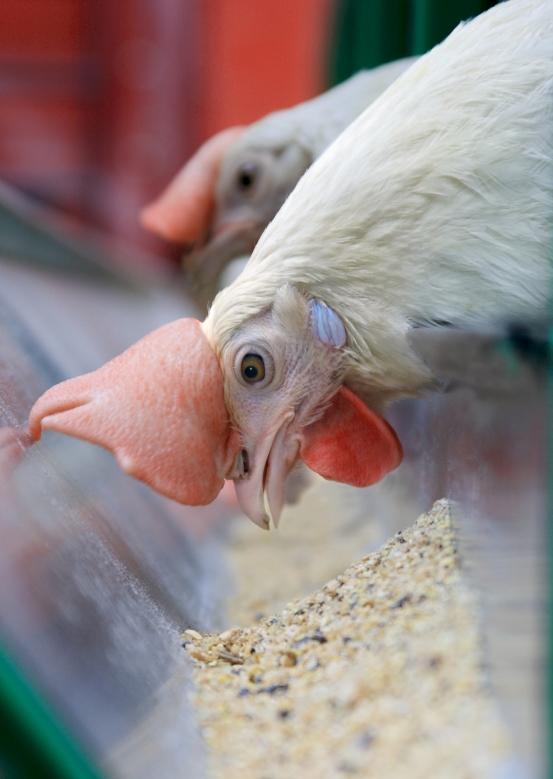Global animal health agencies warned today that the H5N8 avian flu virus represents a serious threat, especially to less-wealthy European countries, in the wake of additional confirmed and possible outbreaks in the Netherlands in recent days.
In a joint statement, the World Organization for Animal Health (OIE) and the UN Food and Agriculture Organization (FAO) said the virus "poses a significant threat to the poultry sector, especially in low-resourced countries situated along the Black Sea and East Atlantic migratory routes of wild birds."
The agencies didn't cite particular countries, but those flyways run along the western shore of the Black Sea and through parts of northern and western Europe.
After a series of costly outbreaks in South Korea earlier this year, the H5N8 strain has sparked outbreaks in northeastern Germany, the Netherlands, and the United Kingdom this month. The virus has not been known to infect humans.
Latest Dutch outbreak
In the Netherlands, H5N8 was confirmed Nov 22 on a breeding poultry farm in the village of Kamperveen, marking the country's third confirmed H5N8 outbreak in a week, according to a report the country filed with the OIE. The outbreak had been reported in the media on Nov 21, but the specific strain was not known at that time.
The farm is about 60 miles north of the two earlier outbreaks in Utrecht province, according to a Nov 21 Agence France-Presse (AFP) report.
On the Kamperveen farm, 500 of a flock of 10,000 birds died, and the rest were destroyed to control the outbreak, according to the OIE report. It said 26 other farms within 10 kilometers of the affected one would be checked for the virus.
The Nov 21 AFP story, citing the Dutch economic affairs ministry, said signs of avian flu were found on two other farms within 1 kilometer of the Kamperveen farm, but the virus strain was not yet known. The Nov 22 OIE report cited only one outbreak.
In addition, Reuters reported Nov 22 that 8,000 domestic ducks were being killed on a farm in the central town of Barneveld, Gelderland province, as a precaution against H5N8. The culling operation was expected to increase the number of birds destroyed since the country's first H5N8 outbreak to 211,000, the story said. It did not make clear whether any of the ducks were infected.
Infected wild birds in Germany, Japan
In other developments, H5N8 was detected Nov 22 in a wild duck in northeastern Germany's Mecklenburg-Vorpommern province, the same area where a turkey farm was hit by the virus earlier this month, according to Reuters reports yesterday and today.
The wild-duck infection prompted German authorities to announce today that poultry in regions with a high risk of contact with migrating wild birds must be kept indoors to protect them from avian flu, Reuters reported.
Elsewhere, Japanese authorities reported Nov 21 through the OIE that H5N8 had been found in 2 of 50 fecal samples from wild birds of unidentified species. The samples were collected in Chiba prefecture, which is in the greater Tokyo area. The samples were collected Nov 18.
And in India, close to 17,000 ducks in Kerala province recently died of avian flu of an undetermined type, the Indian Express newspaper reported today. The province lies on the southwestern coast near the southern tip of India.
The story said deaths have been reported in two villages and that plans called for destroying all poultry within 1-square-kilometer areas surrounding the villages.
An economic threat
In their joint statement, the OIE and FAO warned that the H5N8 virus could cause serious economic damage.
"Should poultry systems with low-biosecurity conditions become infected in countries with limited veterinary preparedness, the virus could spread through farms with devastating effects, both on vulnerable livelihoods as well as on country economies and trade," the agencies said.
"The new virus strain provides a stark reminder to the world that avian influenza viruses continue to evolve and emerge with potential threats to public health, food security and nutrition, to the livelihoods of vulnerable poultry farmers, as well as to trade and national economies," the statement said. "Therefore extreme vigilance is strongly recommended, while progressive control efforts must be sustained and financed."
The two agencies called on governments to increase avian flu surveillance; strengthen the response capacity of veterinary services; reinforce biosecurity measures, especially as they relate to wild birds; and raise awareness among hunters and others who may come in contact with wildlife.
See also:
Nov 24 joint OIE-FAO statement
Nov 22 OIE report on latest Dutch outbreak
Nov 21 AFP story on Dutch outbreaks
Nov 22 Reuters story on duck cull in Netherlands
Reuters stories on wild-bird infection in Germany: Nov 23, Nov 24
Nov 21 OIE report on wild-bird infection in Japan
Nov 24 Indian Express story





















